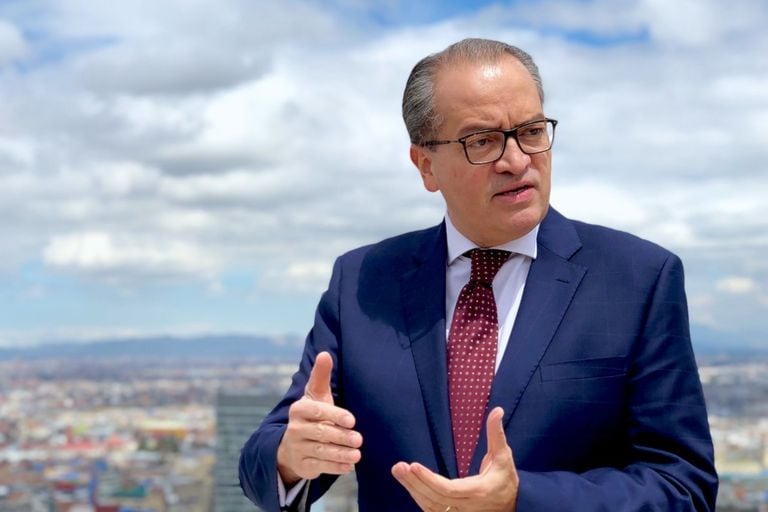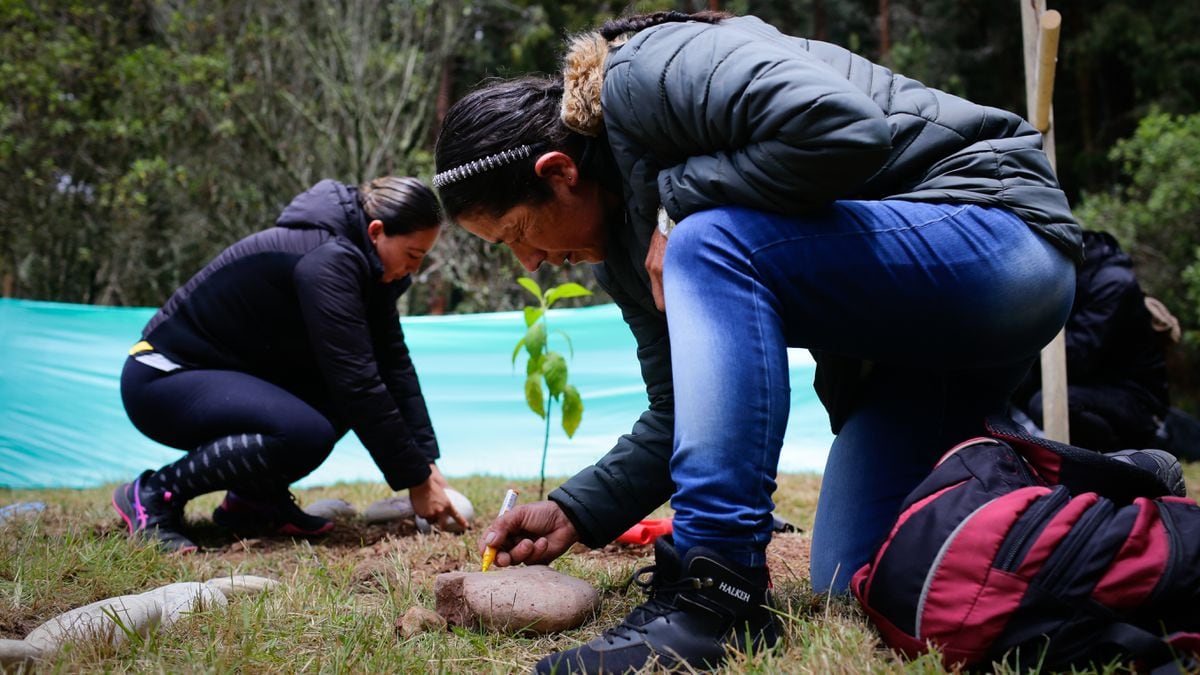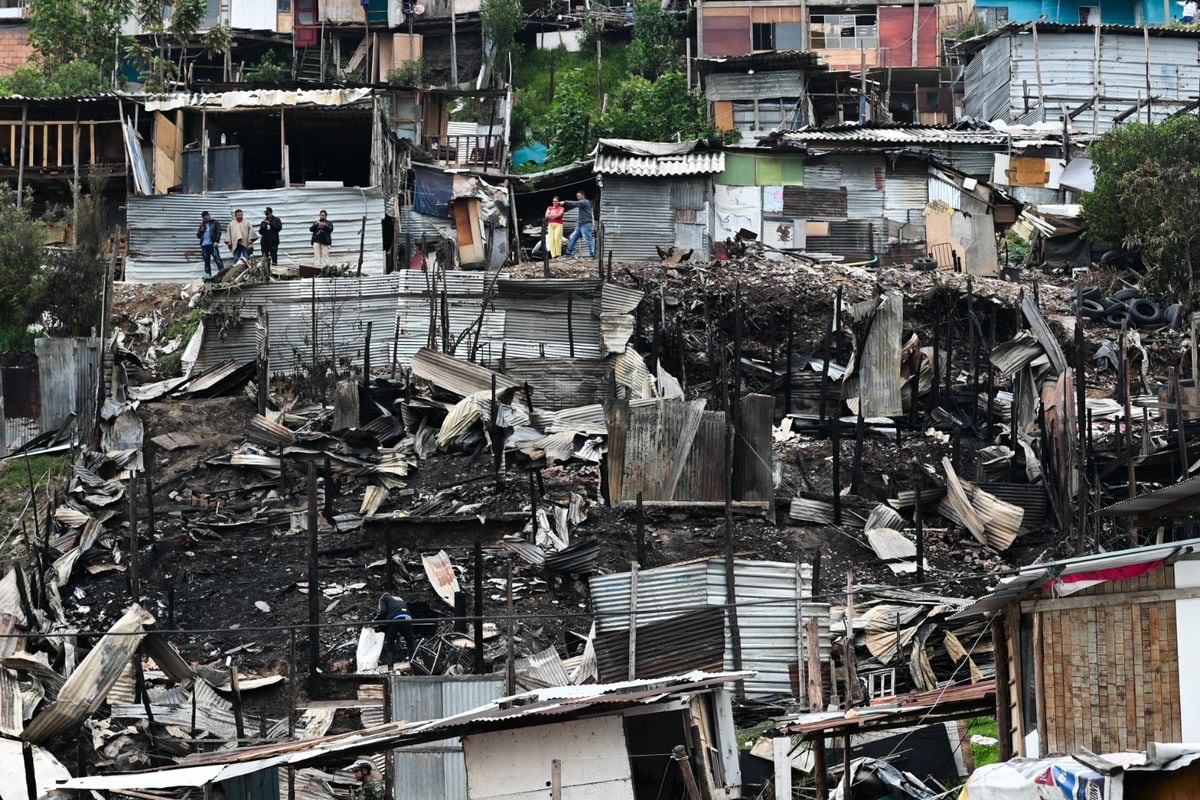Fernando Carrillo Flórez (Bogotá, 57 years old), Attorney General of Colombia, faces the final stretch of his mandate at the head of the body in charge of fighting corruption and investigating disciplinary offenses by public servants. Although he has five months remaining in charge of the public ministry, Congress elects this week who will be his replacement from next year. “What is coming requires many national agreements. Colombia has to stop this extremism, this tension and of course this polarization. Here we cannot continue moving to extremes ”, values Carrillo, who has been Minister of Justice and the Interior, ambassador to Spain and part of the movement of the seventh ballot that gave rise to the 1991 Constitution. This conversation with EL PAÍS takes place in the midst of one of the most critical moments since the signing of the peace agreement with the FARC, with the outbreak of multiple massacres in recent weeks.
Question. Why are we seeing this sudden increase in massacres in different parts of Colombia?
Reply. AOnce again, the institutional density of the State is very poor in the regions and territories. Here it has been believed that due to the temporary and temporary presence of the public force, the territories are recovered, and they are recovered based on trust in the State, social presence and territorial justice. The peace accords went in that direction of creating a social institutionality, we are talking about health, education, public services, roads and justice. And I underline justice, because the greatest institutional deficit in the Colombian territories is local justice. Where there is no local justice, there can be no peace, there is barbarism, there is a return to the past. Because unfortunately what we are seeing in terms of massacres, assassinations of social leaders, anarchy at the level of public order is the presence of organized crime, without a doubt, of illegal armed actors, but they are in some way protected by the lack of structures local courts.
P. The Attorney General's Office has warned, among others, about the increase in forced recruitment, even in the midst of the pandemic. Why has the Colombian State been unable to reach the territories, despite the fact that this was one of the great promises of the agreements?
R. Some have believed that mediocre compliance with the peace accords is having a go-ahead from the international community. And the commitment goes much further than that. It has been thanks to all the support from the international community, specifically from the European ambassadors and from so many others, that some kind of government commitment to the peace accords has been maintained. I insist that it is not just a matter of going to the territories once the massacres have been committed, counting the bodies, meeting with the relatives and returning to Bogotá. What is required is a permanent presence of the institutions. This central and centralized State must be turned over to the territories. The problem of peace in Colombia continues to be a problem of a squalid and weak institutionality, and an almost null presence of the State. What should be considered is what the percentage of compliance really is, and the political will to comply. Far from reducing the number of victims, fulfilling it, repairing, restoring, what is happening in Colombia in recent months is that the war machine is producing new victims.
P. What has not been fulfilled?
R. For example, the ethnic chapter of the agreements has not been fulfilled, which implied greater institutions, greater investment for indigenous, Afro and peasant populations. That they are confined, but the armed actors are attacking them. And against young people, because all these dead from these latest massacres are young Colombians, too. Because they have not acceded to the guerrilla's claims. Because they have been stigmatized. Or simply as a display of authority by armed actors who arbitrarily dispose of people's lives and are sowing terror and fear that was not seen in Colombia for many years.
Q. Is this the biggest security crisis since the signing of the agreements?
R. I think so, violence continues to escalate, violence continues to escalate. Indepaz [Institute for Development and Peace Studies] says that more than a thousand social leaders have been assassinated since the agreements were signed, and that is already an absolutely worrying indicator. And it is not the number, because there is a discussion with the Government, it is not the defense with the rear-view mirror. Here we have to look at what is happening in Colombia at the moment, and come to an agreement. The truth is that the scenes of the most brutal violence are being repeated in the territories. In Nariño, Cauca, Chocó, Antioquia, Norte de Santander, Arauca. There are six departments where violence and the extermination of social leaders and ex-combatants of the FARC are concentrating.
P. The political moment is also delicate. After the house arrest of former President Álvaro Uribe, ordered by the Supreme Court, you called for compliance with the decisions of the courts.
R. In a concept that we render before the Court, showing how the Attorney General's Office is in the balance, we asked the investigating chamber to send the file of former President Uribe to the Prosecutor's Office for absolutely legal reasons. Due to the solidity of various rulings of the Supreme Court itself, which explain very clearly that when a senator loses his jurisdiction [Uribe resigned his seat], that process simply has to go to the Prosecutor's Office unless a functional relationship with the crimes, which the Attorney General believes was not proven in the record. And that led us to, in the last paragraph of that memorial, insist again that from the President of the Republic to the most modest of public officials, they must respect and enforce the rulings of justice. The way to dispute a court ruling is before the courts, within the framework of the process itself. The basis of a rule of law is respect for autonomy, independence and the judiciary, whose decisions must be followed.
Q. Senator Iván Cepeda, considered a victim in the case, has stated that the Court should maintain its jurisdiction. Why do interpretations abound?
R. The concept of the Attorney General's Office is absolutely legal, adhering to the regulations, to the jurisprudence of the Supreme Court of Justice itself, whose magistrates in the past issued and indicated criteria for cases in which a senator loses jurisdiction. I'm not going to get into the political controversy. In the same case, we exonerated Senator Iván Cepeda from all disciplinary responsibility, in another disciplinary process, considering that there was no room for any type of sanction.
P. Cepeda's decision confirms his acquittal, despite Uribe's defense insisting on asking for it to be reviewed.
R. Because what the public ministry defends are the interests of society. How in a disciplinary process and in a criminal process, regardless of the extremisms and polarization that exists in Colombia, which wants to invade judicial decisions, the Attorney General's Office can rule in a case always based on the interests of legality. And period. Never allowing himself to be influenced by that poison that is the politicization of justice.
Q. Are you concerned about the polarization that prevails around the processes against former President Uribe?
R. I am very concerned about the way in which they try to attack justice. Justice is the gateway to the legitimacy of the State. Where there is no justice there is barbarism, the rule of law does not exist, the dictates of a constitution are not respected. And that is why, regardless of whether one likes or dislikes a ruling, one has to respect the jurisdictional authorities, it is a basic principle. Therefore, any attempt to show political elements in a judicial decision, from side to side, is absolutely debatable and reprehensible. Maximum when a public rostrum is used to challenge the judges' decisions.
Q. You have proposed a justice reform, how is it different from the others on the table, and in particular from the one promoted by the Democratic Center?
R. There are five arguments that define the nature of the reform, and what differentiates it from the others. This was a consultation process that we did during six months, where more than 9,000 Colombians participated. It does not come from the cup of a cabal of experts, but from the needs of the citizens. It is a justice project where the citizen is the center. Second, it is a basic reform, not one with great claims to modernize the courts. It is centered on the needs of a local, rural justice, that of the citizen who suffers the harassment of violence. It is a micro reform but with macro consequences. No need to reform the constitution. The third is focused on the regions, it touches the most vulnerable populations in Colombia where justice does not exist. The last thing is that it addresses the problems that we are going to experience from now on with the great conflict due to the pandemic. The inspiration of the project is to strengthen the rule of law from the base.
Q. You were one of the leaders of the movement that led to the constitution, what do you feel when you hear the proposals of a constituent to reform the justice system?
A. I feel that they are unnecessary, inopportune and ineffective proposals. Colombians care very little what happens in the high courts. The unmet legal needs of Colombians are at the local level. They are the peasants who have a problem of access to land, the social leaders who see a problem of impunity in the face of murders and the way they are stigmatized, the women who suffer domestic violence.
Q. What would you advise your successor or successor?
R. Three fundamental tips. Do not forget that this institution was born as a bulwark of public ethics, and the biggest deficit that Colombia has is not fiscal, economic or social, it is the deficit of public ethics. And this has to be an ethical reference. The second is that by virtue of this, the defense of the public interest prevents a prosecutor from allowing this to become a hunting ground for politicians, and especially for regional politicians. And the third thing is that it is not an institution to do favors to anyone. Anyone who believes that the Attorney General's Office is a machine to do favors by being an accomplice of friends or a persecutor of enemies is simply distorting the function of the public prosecutor's office.




/cloudfront-eu-central-1.images.arcpublishing.com/prisa/3JJD4TKINZEPFLXDOCJAQFGKXE.jpg)
/cloudfront-eu-central-1.images.arcpublishing.com/prisa/62WTZ2YGTKOGTJ6OXJW67JCCME.jpg)
/cloudfront-eu-central-1.images.arcpublishing.com/prisa/CHRJ6ZFMEFCBDNPUSUSFWRPRFE.png)


